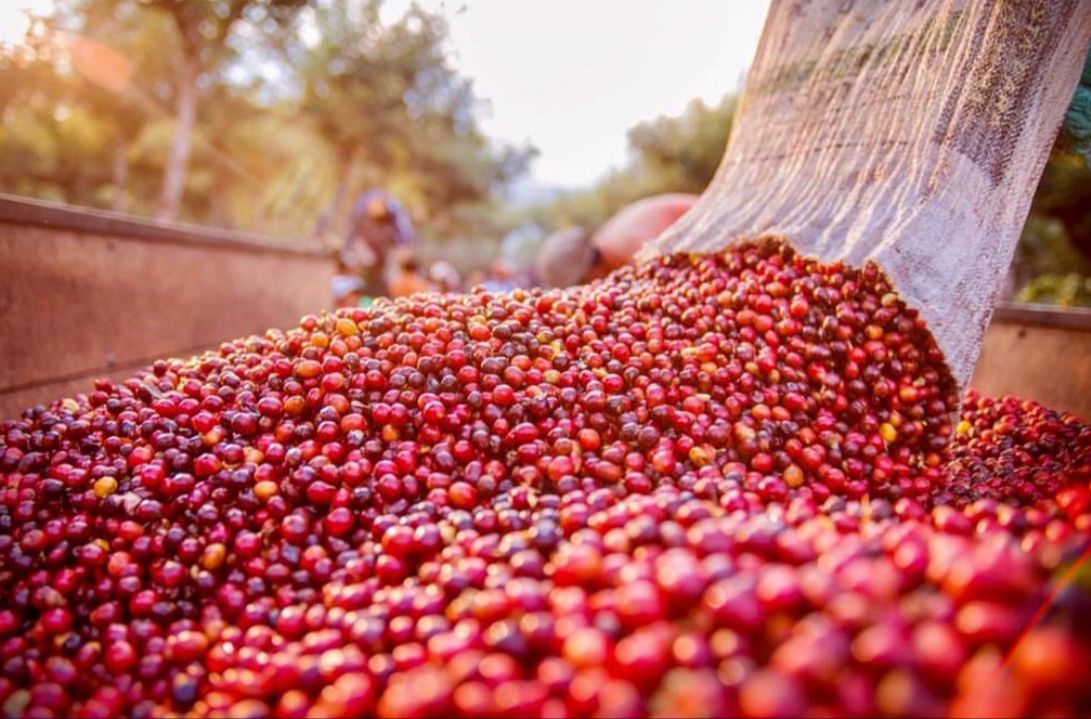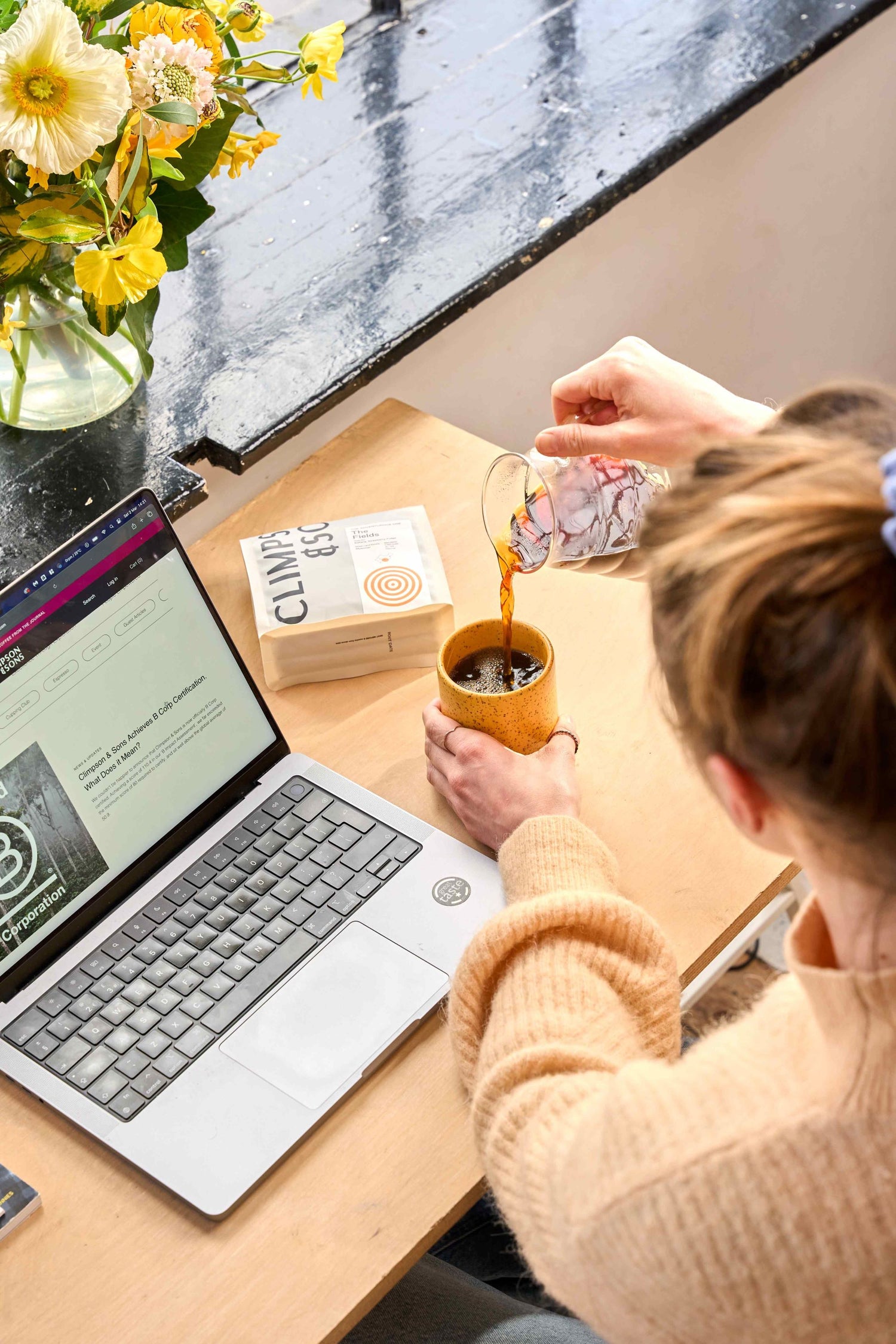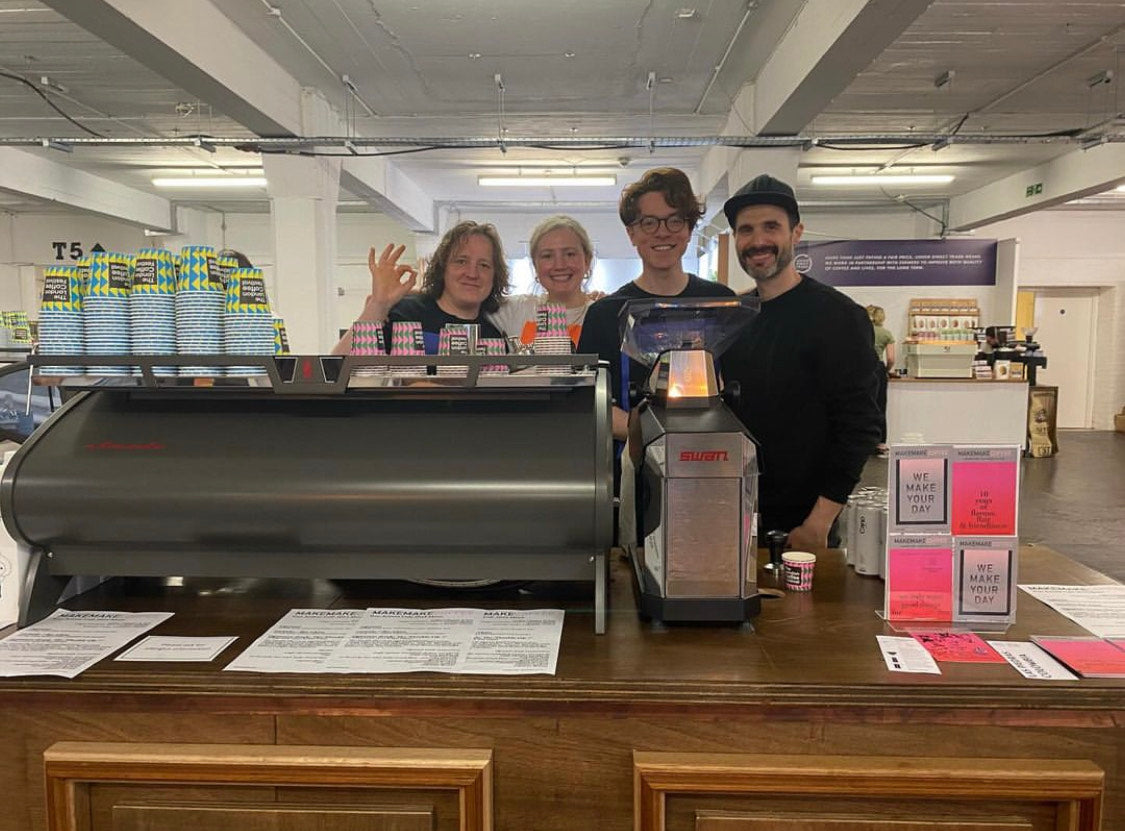By Rebecca Wooden
The first sip is decadent with an almost chewy sweetness. The morning after the February edition of our Cupping Club I’m brewing Baba Budan Giri, the first Indian coffee roasted at Climpson & Sons, informed by the knowledge shared by Importers Shirani and Christian of Indochina Coffee about where this coffee has come from and the importance of emerging Asian producers in specialty coffee today.

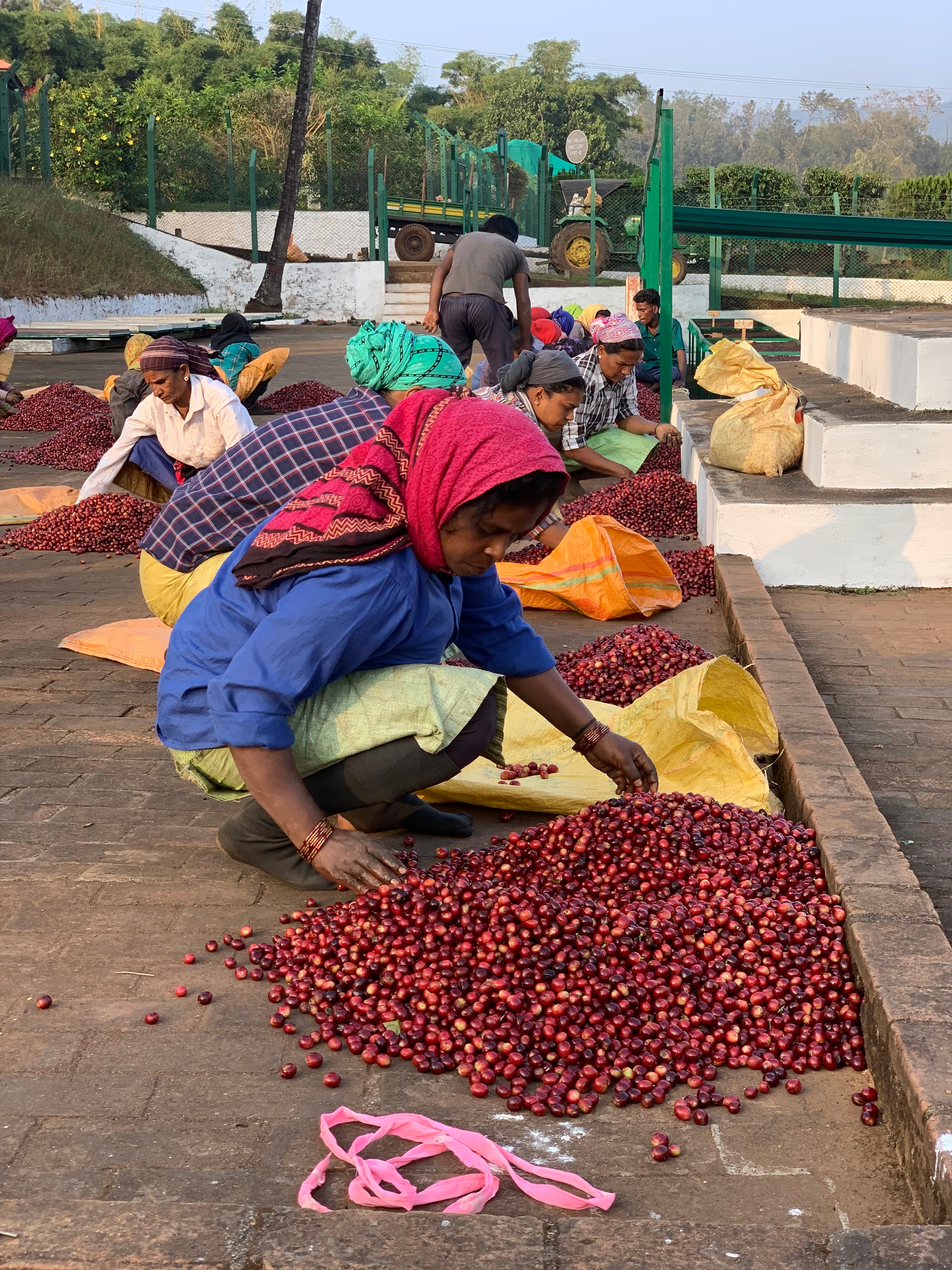
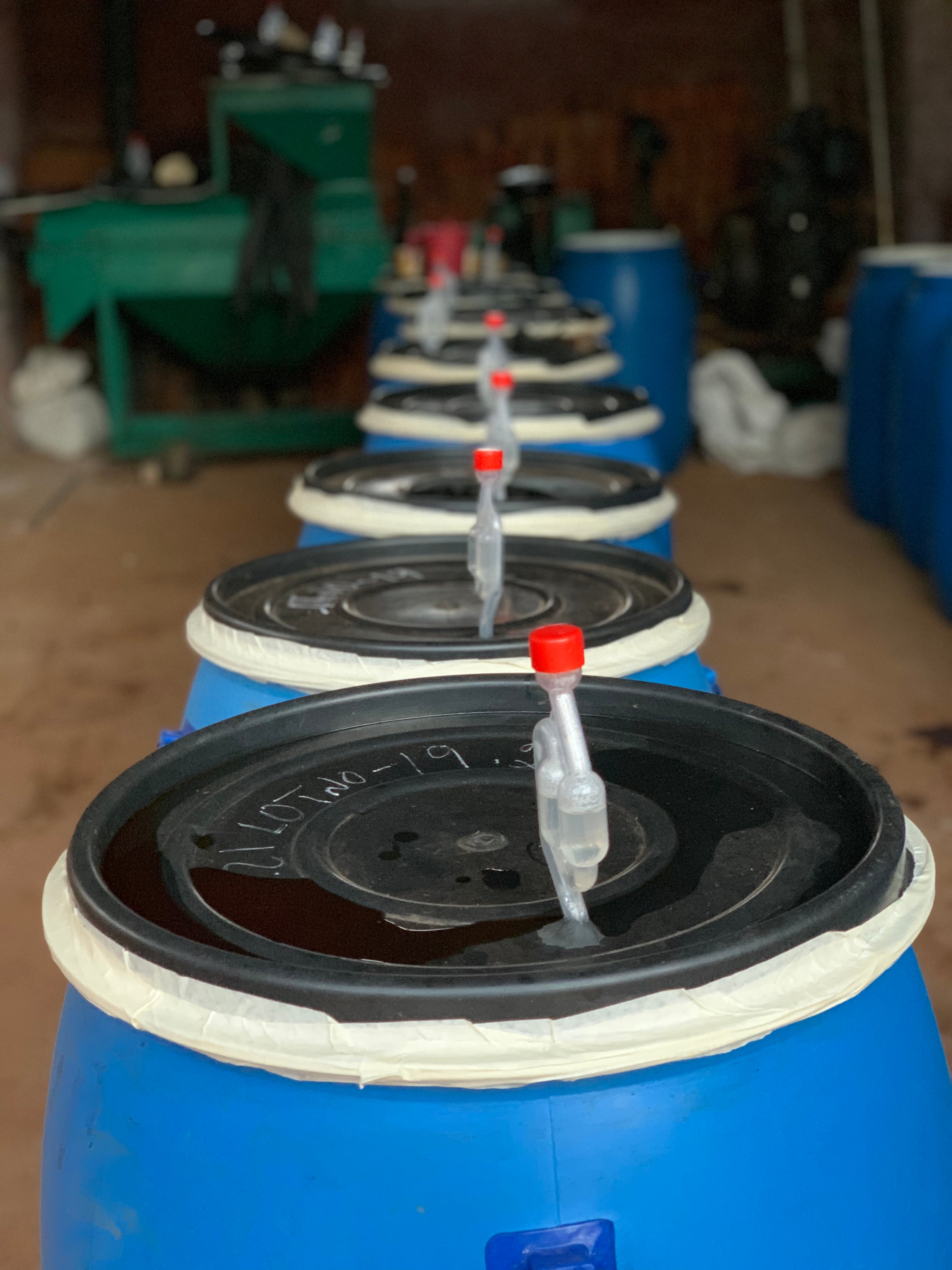

Picking, sorting, processing and packing at Thogarihunkal Estate
The last time Indochina joined us for a cupping club was way back in the heady pre-pandemic days of 2020, where we sampled coffees from China and Myanmar. Since then, Shirani and Christian have been able to bring a wider range of lesser-known origins from across Asia to the table. At the February cupping we sampled coffees from Thailand, Philippines, China, Myanmar and, of course, our latest roast Baba Budan Giri from the Chikmagalur District of Karnataka, India. This widening range of origins is the result of years spent working with producers, overcoming the challenges of production and export logistics through the pandemic, to build now well established relationships.
What a night. We loved having the chance to taste some truly unique coffees side by side, as well as hear a little more about the process behind the bean and share the skill and hard work of our producer partners to our customers. Here we share thoughts on the history of coffee in India and explore the environmental goal behind local export partners Ekata, as well as taking a look at what the future of coffee production in this region might look like.
A history of Indian coffee
While India is most known for tea cultivation, you might be surprised to know that India’s history of coffee production predates that of tea by some 200 years, dating back to the Mughal empire.
Coffee is legendarily said to have been smuggled into the country by the Sufi saint Baba Budan in the 16th Century, who discovered the crop while travelling through the Middle East during his Hajj. He is said to have returned to his home state of Karnataka concealing 7 beans smuggled from Yemen in his beard. He planted these beans in the hills of Chandragiri, now known as Baba Budan Giri (translated as Baba Budan Hills) and the crop continued to grow, with India now the 6th largest producer of coffee in the world.
For Indochina, working with Indian coffees is quite different to other regions they source due to the long-history of production in the country. Most coffees are produced by smallholders, with a production of less than 5 acres who have often been cultivating coffees ancestrally for hundreds of years.  Christian visits 6th and 7th generation father and son owners of Thogarihunkal Estate.
Christian visits 6th and 7th generation father and son owners of Thogarihunkal Estate.
While India is most commonly known for commercial grade Robusta coffees, or perhaps Monsoon Malabar (a naturally processed coffee exposed to an annual coastal monsoon climate that became particularly popular in Europe in the 1970s), there’s been a growing interest and investment in specialty coffee in recent years. Excellent growing conditions can be found due to well established indigenous tree canopies and lush biodiverse conditions. While there is a capacity to grow high scoring and rarer varieties in the region, a great focus has also been placed on the higher yielding and more reliable varieties that allow producers to plan for a consistent return on their investments, year on year.
Baba Budan Giri, why did we buy this coffee?
This coffee has been approached from a uniquely environmental perspective through Indochina’s partners in the region, Ekata. Consisting of seven passionate friends from Kerala, Ekata have been working with farmers in the Western Ghats since 2016 where they became acutely aware of the growing impact this area has on the wider climate of the region after severe flooding in 2018. As well as being experts in specialty processing, they have also become advocates for organic farming and have a vast long-term goal to eventually see all coffee production in the region transferred to organic practices. Working towards this goal begins on a small scale, working closely with individual farmers to improve quality and attention in processing. Christian notes that five years ago, this goal was not taken seriously in the country but has since been gaining big traction.
Watch a brilliant video on the ethos of Ekata here.
What does the future look like for Indian coffee production?
Of course we look forward to following Ekata’s work towards a fully organic production, and welcoming more of their coffees each year and in doing so supporting their long-term work on a local level.
In broader terms, we also spoke about the potential growth in robusta, not just in India but across other coffee producing countries also, that could be explored through new and innovative processing methods to create a greater depth in flavour profiles. A change in perception towards a higher grade specialty robusta could help producers with this often being a reliable and more consistent crop that could aid economic sustainability at farm level.
Shirani and Christian highlighted the challenges of the trend-driven nature of specialty coffee that can result in some producers focussing on competition grade crops or experimental processing methods, in particular natural processing that can fall victim to unpredictable weather systems. While some of these coffees will be bought, roasted and brewed at competition level, others can be rejected due to numbers on a scoring sheet, leaving the investment of producers unreturned.
The February cupping club was a wonderful chance to see just how far we’ve come in highlighting emerging Asian coffees in the last few years. It’s been great to see so many of our customers excited about these coffees, eager to try new flavour profiles and find out more about the production in these regions. We are certainly looking forward to welcoming back more coffees from India and other emerging specialty regions in the years to come.
Thanks again to Shirani and Christian for sharing your experience, and continuing to source truly exciting coffees for us to roast and enjoy.
What do you think of Baba Budan Giri? Share your thoughts in the comments below.
